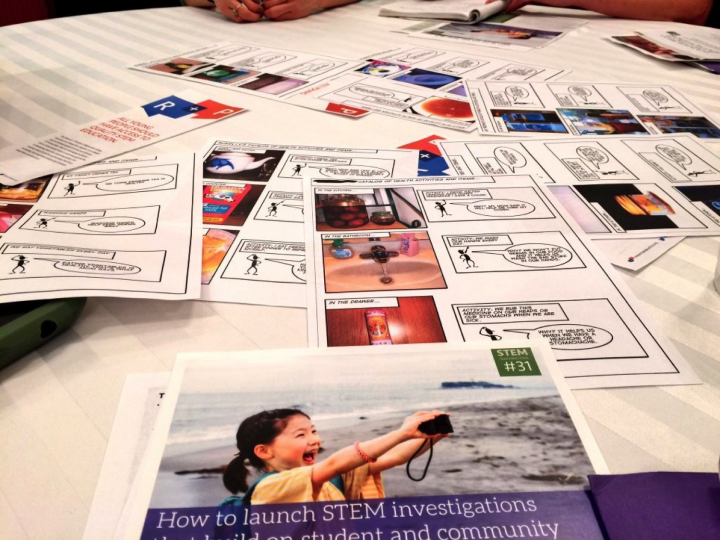ACESSE Resource C: Making Science Instruction Compelling for All Students: Using Cultural Formative Assessment to Build on Learner Interest and Experience

How can science instruction be meaningfullyconnected to the out-of-school lives of students? What role do students’ cultures play in science learning? How might teachers use formative assessments to root science learning in students’ cultural contexts, interests, and identities? This open educational resource is designed to help educators develop cultural formative assessments that build on students’ pre-existing interests, identities, and experiences.
This session highlights cultural dimensions of science learning and showcases a general instructional technique for formative assessment called “self-documentation”—where students collect information related to a particular theme in their everyday lives. It describes an example use case of a self-documentation activity and how it was incorporated into a culturally diverse classroom. The session also highlights different assessment approaches and guides educators in thinking about particular goals for incorporating cultural formative assessment into their own practice.
This resource is designed to be used as a 2 to 2.5 hour professional development session for educators. The module includes all of the resources that PD facilitators need to adapt and run the sessions—including slides, speaker notes, facilitator guide, embedded resources, and sample student work. It may be more useful for educators after they have already participated in the following professional development session: ACESSE A: Introduction to Formative Assessment to Support Equitable 3D Instruction.
The professional development module supports the following specific goals for educators:
Learn how to promote equity and social justice as the focal point of NGSS implementation work by focusing on learning and teaching as an inherently cultural process.
Develop a shared understanding of how cultural formative assessment can reveal the interests, experiences, and identities of students.
Understand how and when to use different kinds of cultural formative assessment to guide instruction — and ‘overlap’ the curriculum with the lives of youth.
Link to Open Educational Resource Version (on OER Commons)
Link to PowerPoint File Version
Link to Facilitator’s Guide for this Resource
Link to Sample Student Instructions
Link to Sample Student Work
Link to Sample Student Work as an Accessible PDF and Accessible Word Doc
One-Page Description of this Resource (PDF)
Recording of this Professional Development Session
This resource is an open educational resource (OER) and can be freely shared, modified, and used. This resource is brought to you by the Advancing Coherent and Equitable Systems of Science Education (ACESSE, or “access”) project. It has been developed with guidance from science education experts from across 13 states to make it as broadly useful as possible. You can follow the work of the ACESSE project on Twitter.
Bell, P., Stromholt, S., Neill, T & Shaw, S. (2017). Making Science Instruction Compelling for All Students: Using Cultural Formative Assessment to Build on Learner Interest and Experience. [OER Professional Development Session from the ACESSE Project] Retrieved from http://stemteachingtools.org/p...
